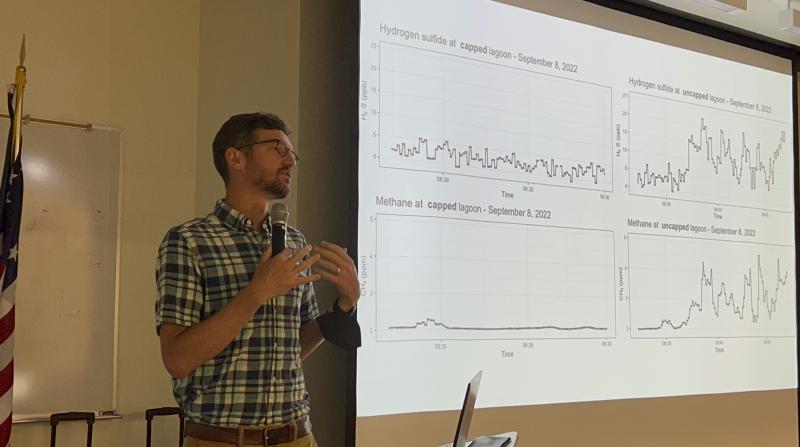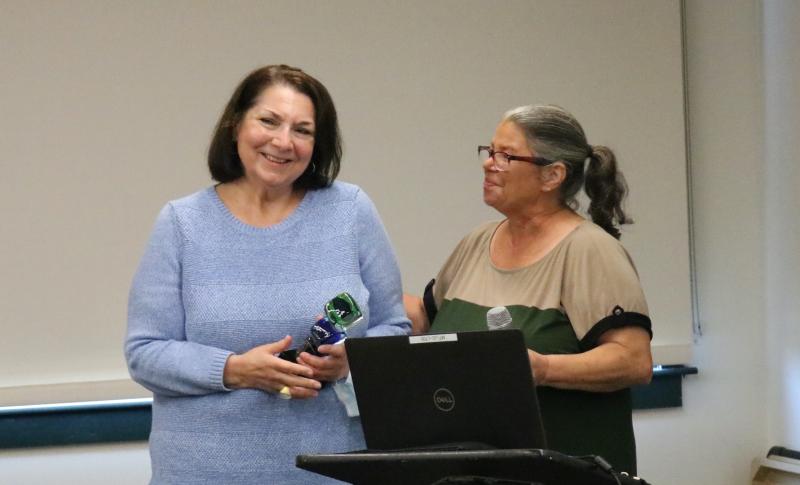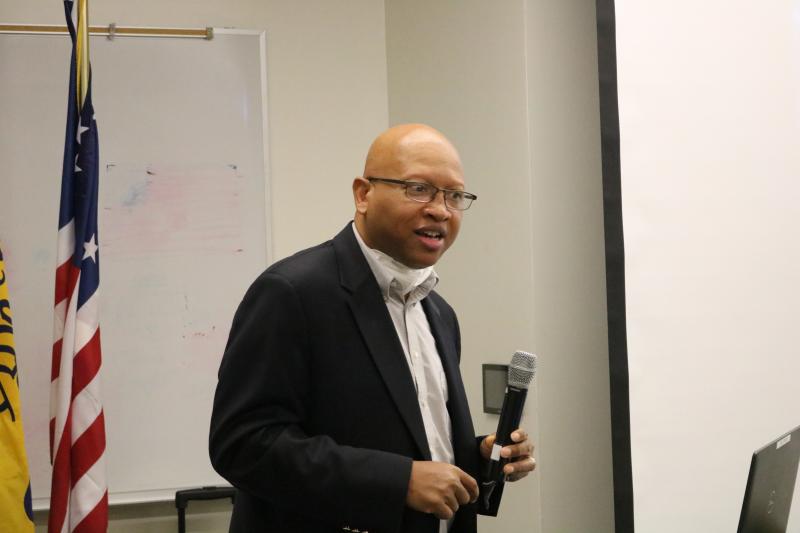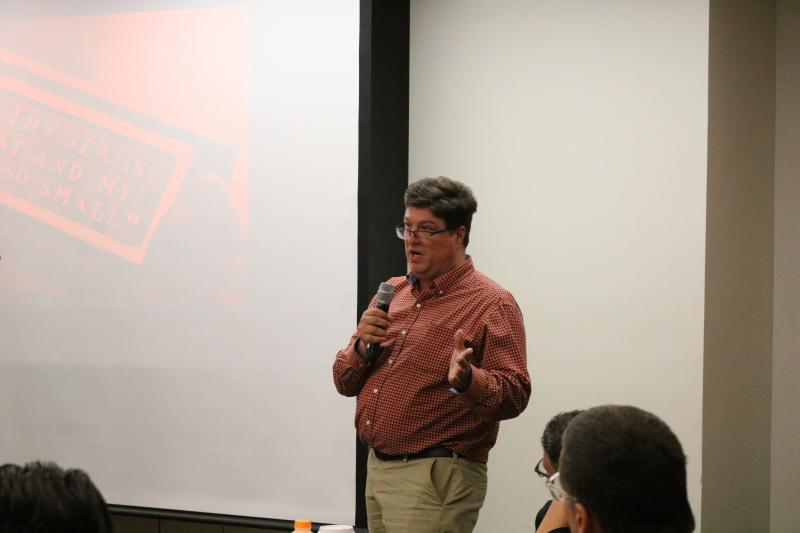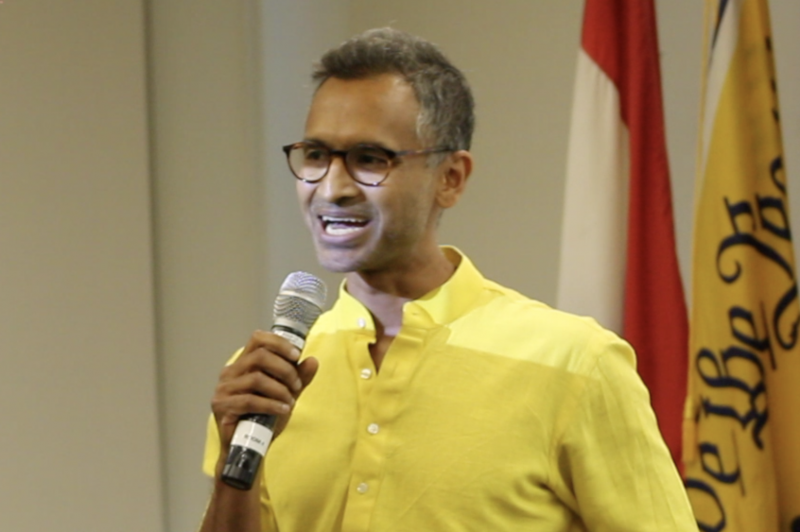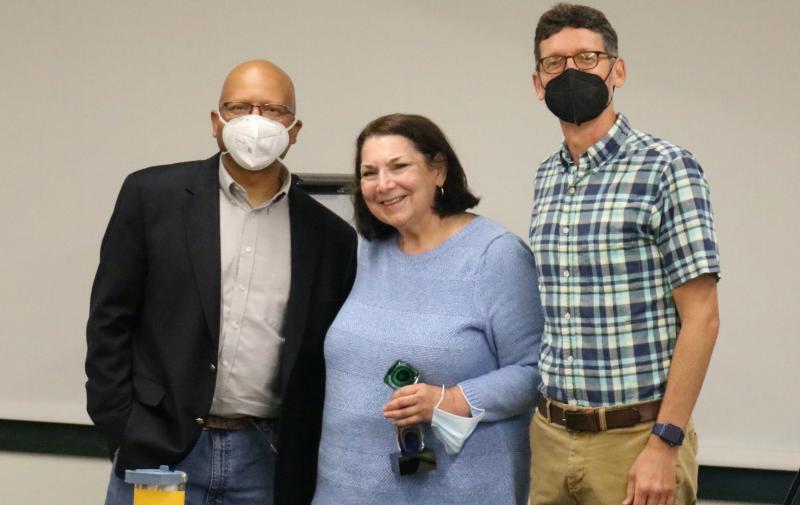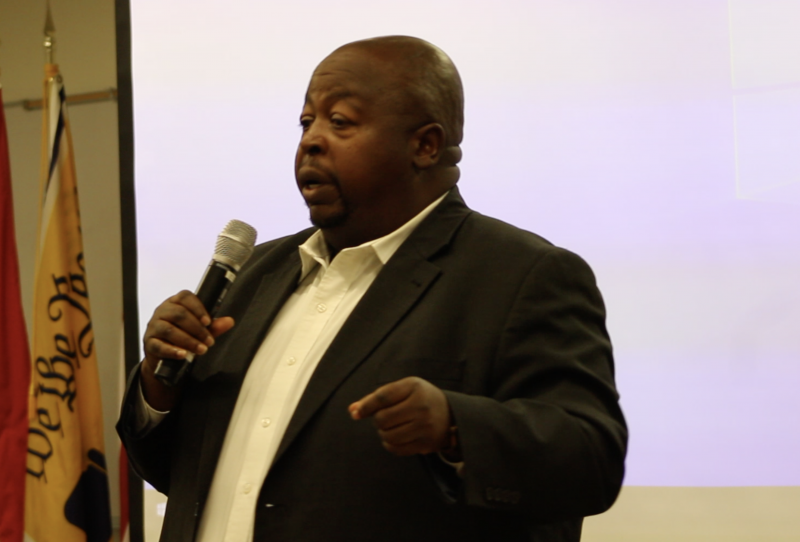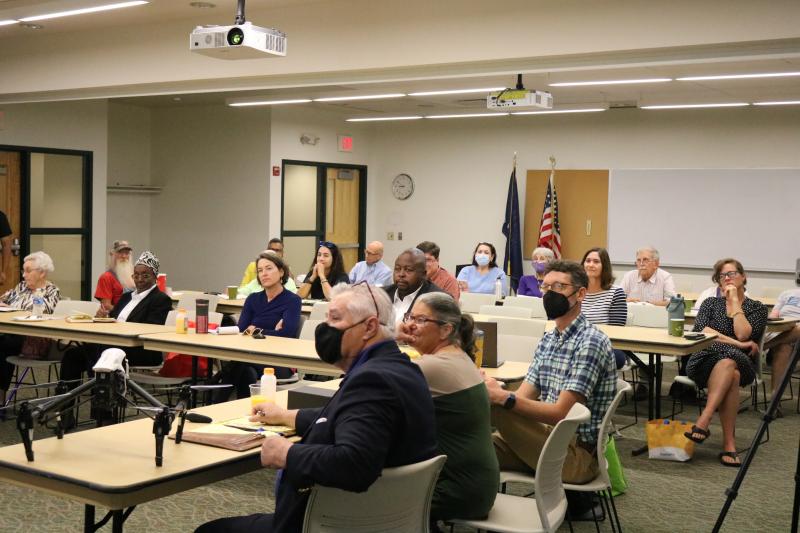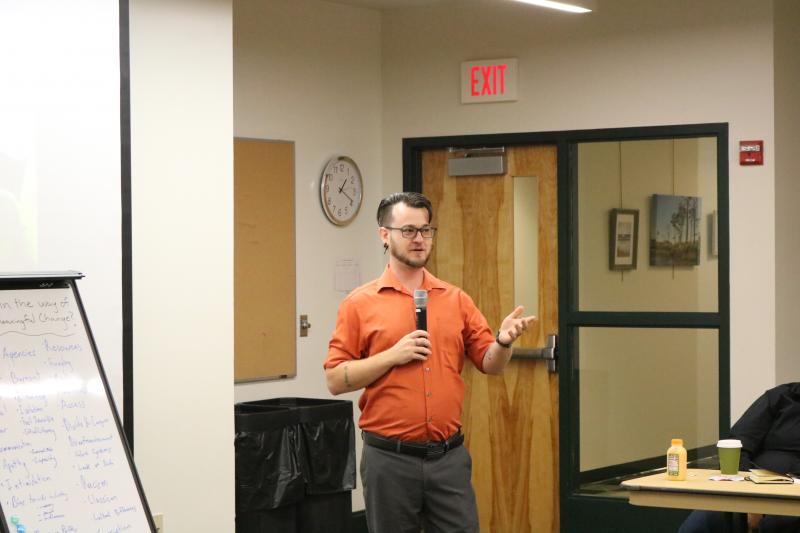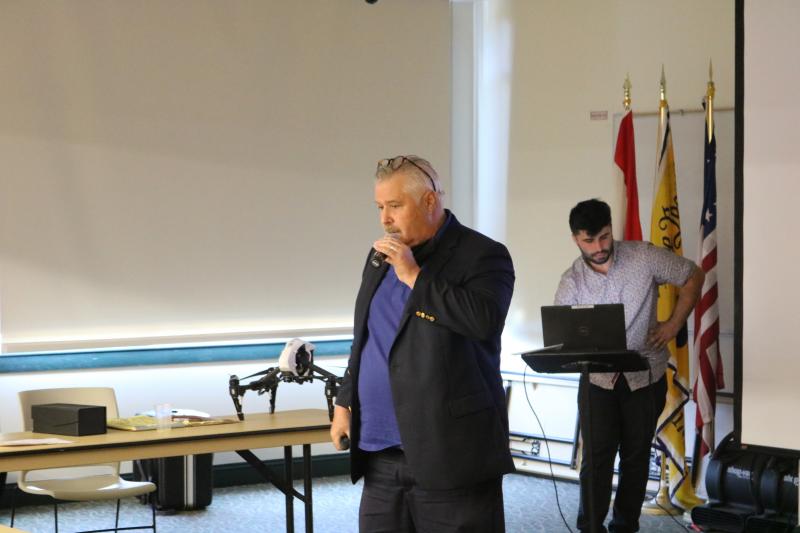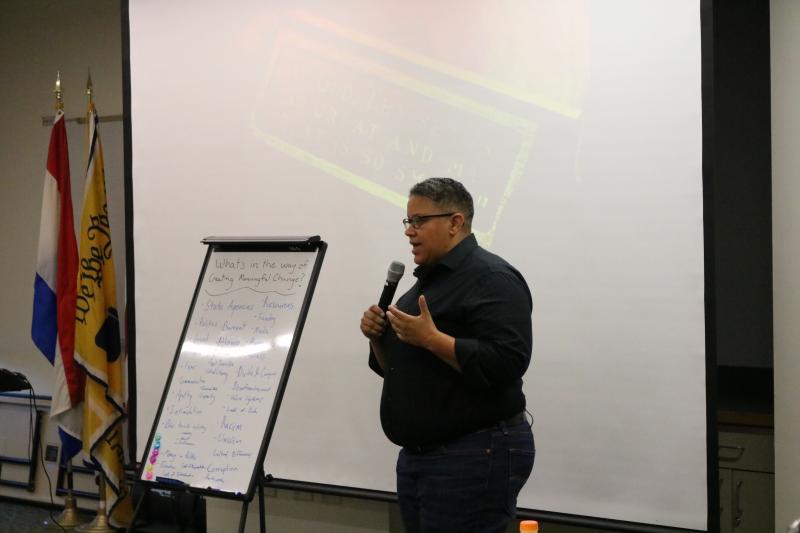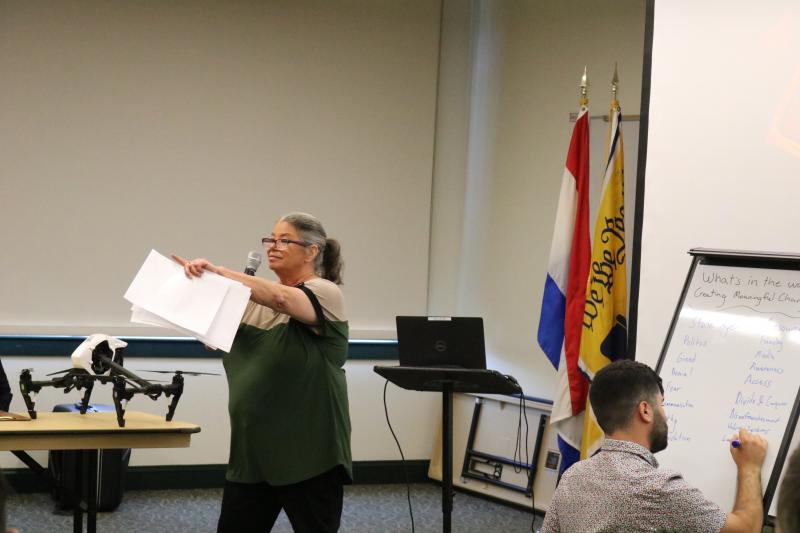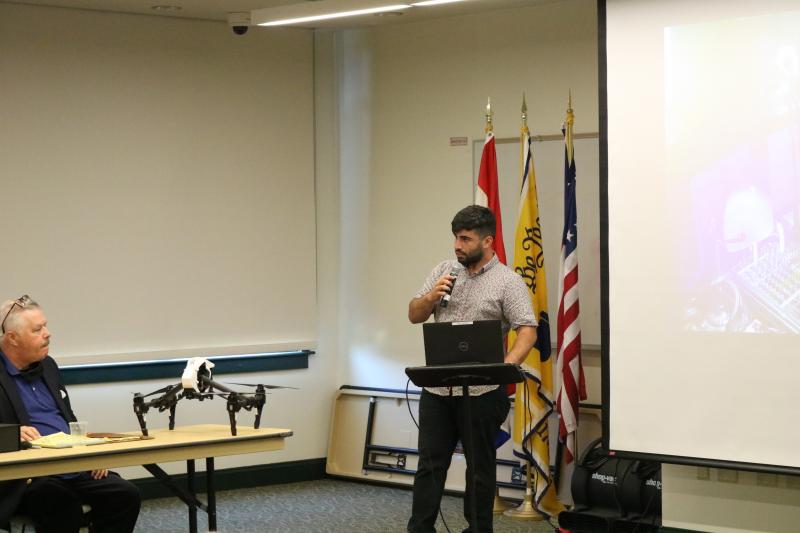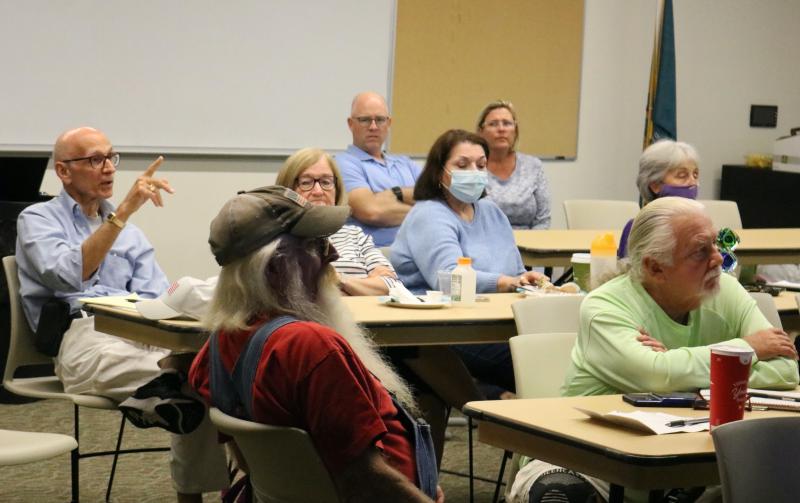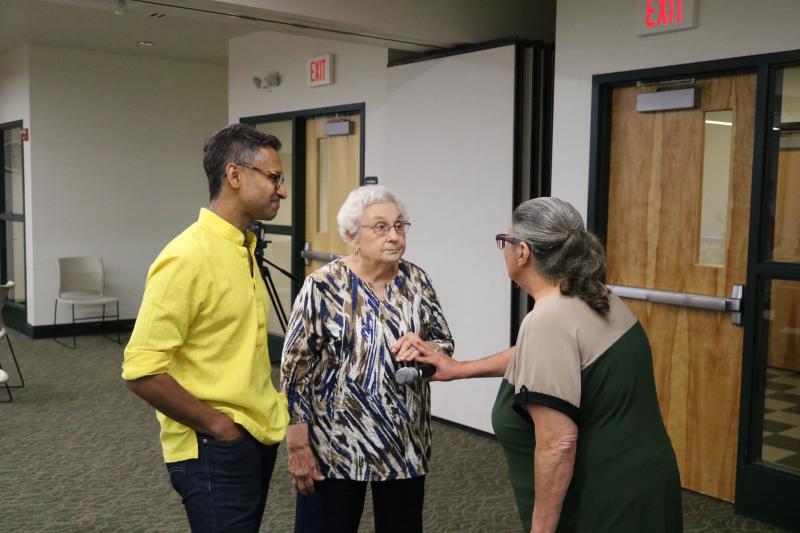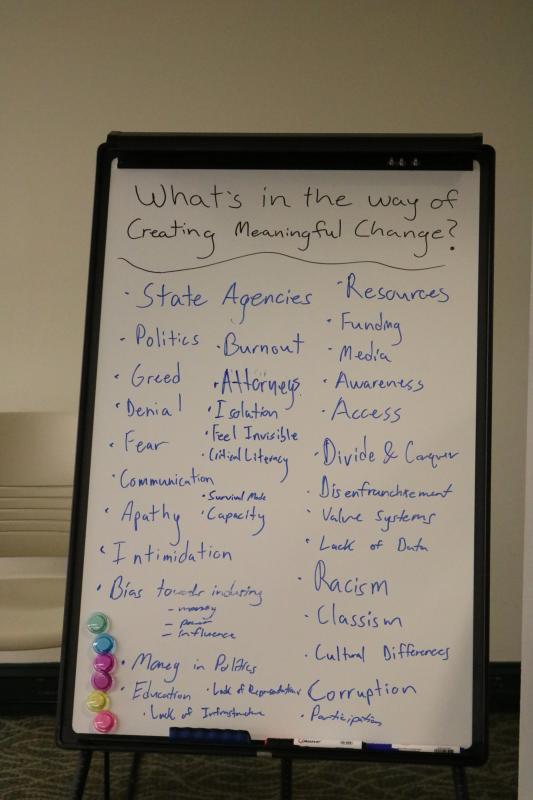Community members from Sussex County and beyond gathered Sept. 17 at Milton Public Library for a seminar hosted by Sussex Health & Environmental Network and Sentinels of Eastern Shore Health to discuss the connections between exposure to pollution and public health risks in local communities. The focus was on the significance and challenges of coming together to develop community power and push for laws that influence local change.
Among the speakers were Dr. Sacoby Wilson, University of Maryland School of Public Health; Dr. Chris Heaney, Johns Hopkins Bloomberg School of Public Health; Rep. Larry Lambert, D-Claymont; Vivek Maru, CEO of Namati, an international social and environmental justice organization; Kerri Evelyn Harris, MidAtlantic Justice Coalition program advisor; Dustyn Thompson, Sierra Club Delaware Chapter director; Greg Layton, Food & Water Watch Delaware organizer; and Jack Bucchioni, Blue Coast Talk owner/operator.
Attendees learned how data can tell the truth about what is going on in a community concerning pollution and public health. In Sussex County, having only two air monitors creates a barrier to driving meaningful change for communities. SHEN members Keith Steck and Shelly Cohen have worked tirelessly putting together a community air-mapping project to create some of the first data of its kind for Sussex County. They were presented with the Community Building Block Award, recognizing that data is a critical component in driving any meaningful change. Heaney and Wilson are working with SHEN on a community-based participatory research project.
Lambert talked to the crowd about how people can help address current environmental problems like toxic pollution in their communities as well as working for clean water and air for every Delaware resident. He told attendees, “Please communicate with your legislators. Please show up to meetings like this. Your passion, your heart, your love, it fuels our machine for positivity.”
Maru spoke on legislation recently passed in Sierra Leone that gives communities free, prior and informed consent before industrial companies undertake potentially harmful operations. “We especially focus on the power of law and the power of people, two of the only tools that ordinary people have in the face of injustice,” he said.
Maria Payan, SHEN co-founder, said, “The argument here often used to justify pollution, to justify industrial recklessness, is economic development. In Sierra Leone, communities could successfully argue that we’re not against development, actually we desperately need development. [But] We don’t want to have to choose between being poisoned and having a job.”
Wilson said, “A lot of these issues are connected. When you use the term structural poverty, it's structured poverty. It’s built-in poverty. Folks who live in rural communities in Delaware don’t have access to clean well water. Folks living in trailer park neighborhoods, they’re easy targets to be dumped on, whether it be chicken farm waste, sludge fields, spray fields. When you think about these issues of structured poverty, you gotta look at the root cause.”
“Think about everyone’s right to enjoy life, to enjoy their home. That is health,” said Heaney. “Tearing that down is just as bad as a disease burden related to cancer. [Working together], we could hopefully fit in in a way around building power, different strategies via legal policy, or for the science and the peer community.”
Representatives from the MidAtlantic Justice Coalition, Delaware Sierra Club and Food & Water Watch spoke about current legislative priorities.
SHEN is a nonpartisan, grassroots coalition of stakeholders in Sussex County working to ensure a clean, healthy environment for future generations. For details, go to shen-network.net.
